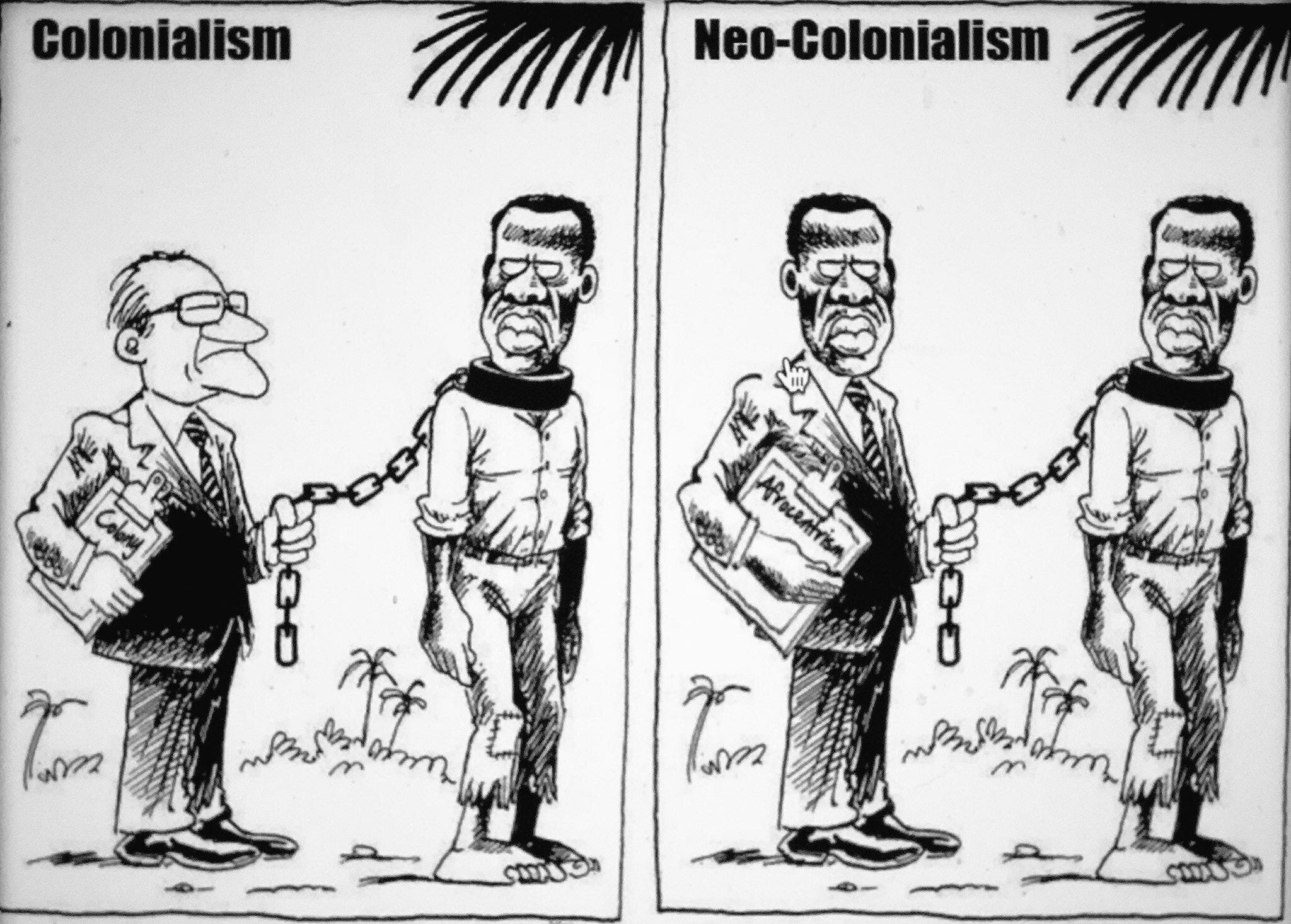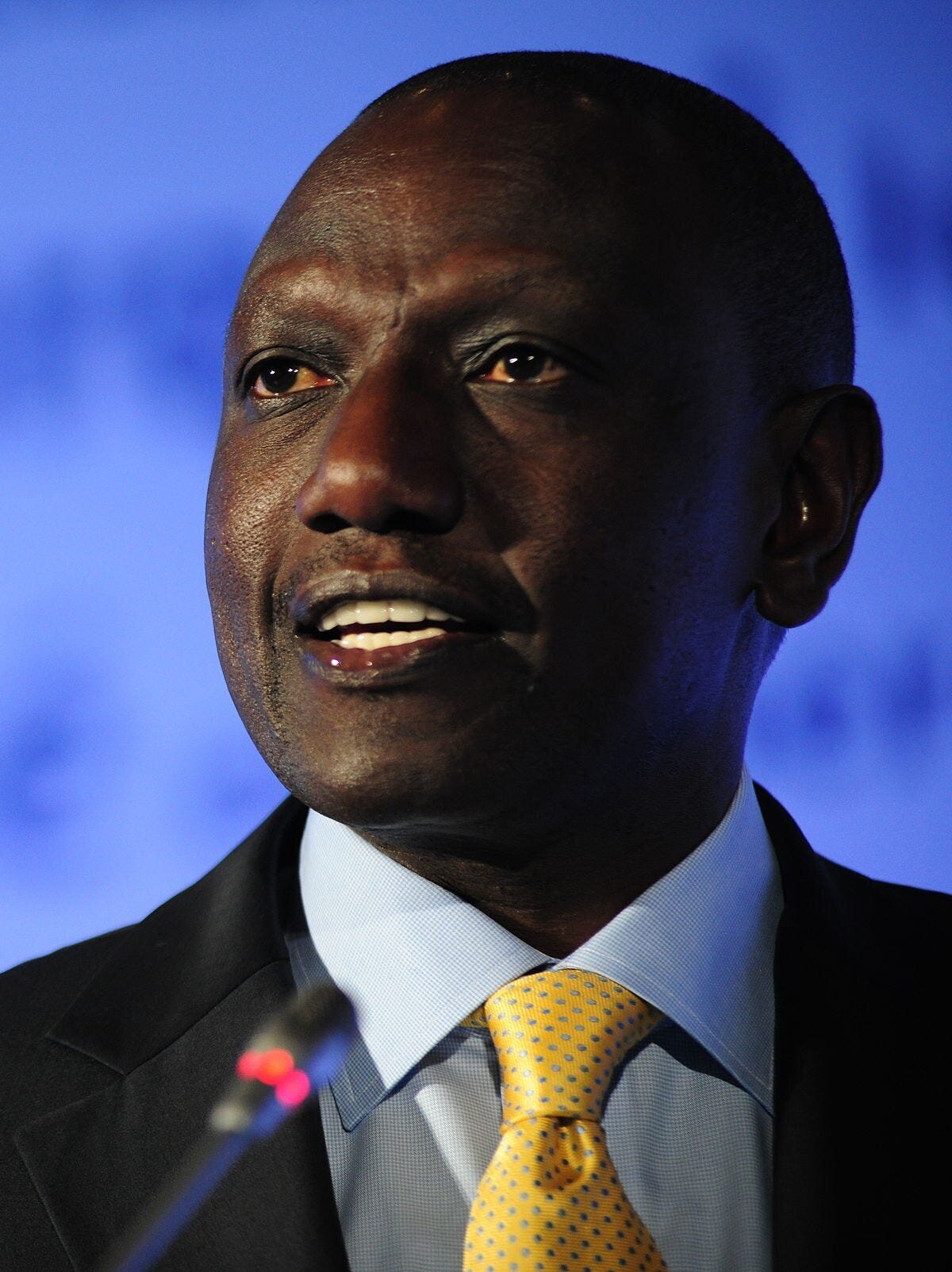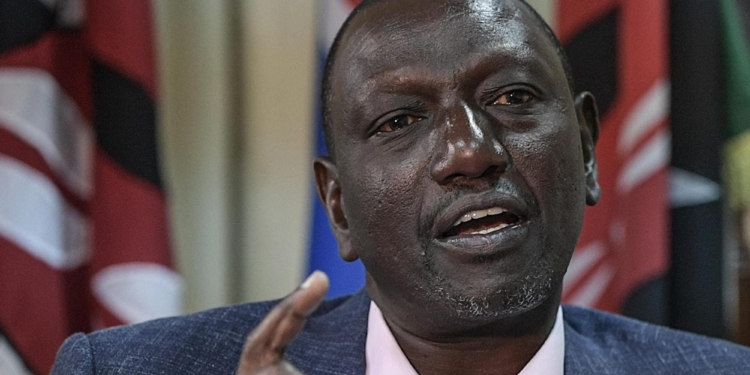Contents
- 1 The Christian Lie
- 2 What is Neo-Colonialism?
- 2.1 How has Christianity been Used as a Tool for Neo-Colonialism?
- 2.2 RelatedPosts
- 2.3 Trump – Zelensky Spat: Is the Age of Modest Pretense Gone?
- 2.4 The Israeli Factor: Why Israel is a Key Ally of the United States
- 2.5 Kenyan Deputy President Rigathi Gachagua’s Rushed Impeachment: Senate’s Landmark Decision Unfolds
- 3 Support Us on Patreon
- 4 The Church Effect
- 5 The Power of Optics
- 6 Becoming President
- 7 Too Much of Anything is Poisonous
- 8 The Poor State of the Mwananchi
Our country Kenya is suffering neo-colonialism, worse still, neo-colonialism that is propagated by Christianity. The William Samoei Ruto administration is a culmination of a carefully sold lie that he is a saint, a staunch Christian, and a man who truly has the country’s interests at heart. He is anything but. WSR is the worst thing to happen to Kenya since Daniel Arap Moi and the common man will be the one who suffers the most.
The Christian Lie
William Ruto packaged himself as a staunch believer in Christ and a God-fearing man as he campaigned for the 2022 elections. Ruto, like the British colonizers who colonized Kenya in the 20th Century, realized how potent Christianity can be, as a tool to colonize the masses. As the adage goes, religion is the opium of the people. What better way to neo-colonialize a budding African nation than by using a tried and tested method? What better way to get you to vote for WSR than to include God and Jesus Christ as his personal Lord and Savior?
What is Neo-Colonialism?
Neo-colonialism refers to a form of indirect control or influence exerted by former colonial powers or other dominant nations over newly independent or less-developed countries. It involves economic, political, cultural, and social domination, often facilitated through various means such as economic dependency, unequal trade relations, military intervention, and cultural imperialism.

How has Christianity been Used as a Tool for Neo-Colonialism?
Christianity, as a dominant religion with historical ties to colonial powers, has been used as a tool for neo-colonialization in certain contexts. It is important to note that this analysis does not imply that all instances of Christian missionary work or religious activities are forms of neo-colonialism, but rather focuses on specific historical and contemporary examples where Christianity has been employed as a tool for exerting control or influencing power dynamics.
- Cultural Assimilation: During the colonial era, Christian missionaries often played a role in cultural assimilation by promoting Western values, beliefs, and practices among colonized populations. This process aimed to erode indigenous cultures, languages, and traditions, replacing them with Western norms. This cultural dominance furthered the control and influence of colonial powers over the colonized territories.
- Conversion and Power Imbalance: Missionary activities have at times been utilized to convert indigenous populations to Christianity, with the intention of undermining local belief systems and reinforcing the dominance of the colonizers. Conversion to Christianity was sometimes linked to gaining social or economic benefits, reinforcing power imbalances, and perpetuating dependency on the colonizers.
- Economic Exploitation: Christianity has been used to legitimize and reinforce economic exploitation in neo-colonial contexts. Missionaries often established or collaborated with institutions such as mission schools, hospitals, and businesses, which played a role in consolidating economic power and control in the hands of the colonizers. These institutions often operated with a paternalistic approach, reinforcing economic dependency and reinforcing the existing power dynamics.
- Political Influence: Christian missionary activities have been known to intersect with political agendas in neo-colonial contexts. Missionaries and religious organizations have sometimes aligned themselves with political powers, supporting or endorsing policies that maintain or advance the interests of the former colonial powers. This involvement can shape the political landscape and limit the agency and self-determination of the local populations.
- Neocolonial Aid and Development: In the post-colonial era, some Christian organizations have engaged in aid and development work in neo-colonial contexts. While many of these efforts have genuinely aimed to alleviate poverty and promote development, there have been instances where aid has been used as a means of control and influence. Conditional aid or development projects tied to religious conversion or adherence to specific ideologies can perpetuate power imbalances and perpetuate neo-colonial dynamics.
It is important to recognize that these examples do not represent the entirety of Christian missionary work or religious activities. Many Christian individuals and organizations have made significant positive contributions to communities worldwide, engaging in genuine acts of compassion, education, and social justice. However, the historical and ongoing intersections between Christianity and neo-colonialism highlight the need for critical analysis and reflection on power dynamics within religious and development contexts.
Support Us on Patreon
Are you a fan of creative content that inspires, entertains, and educates? Do you want to support our platform and help us continue producing high-quality work?
Join our Patreon community today at just $4 per month! From behind-the-scenes sneak peeks to exclusive tutorials and interviews, our Patreon members get the inside scoop on everything we create.
And if you’re not ready to commit to a monthly subscription, you can access free content by subscribing here.
With your support, we can keep creating amazing content and building a community that values creativity and innovation. Join us on Patreon today!
The Church Effect
WSR realized that if he really wanted to touch the soul of the country, he had to paint himself as a humble, crying Christian, who would do all he can to make the lives of the common people, who he called ‘hustlers’, better. Ruto realized that to win the 2022 election, he had to win the soul of the country and he went on to play the script like a master puppeteer. WSR intentionally painted himself as a man of God, and a Christian who would openly cry and plead with God in churches.
The Role of Bribes to Open the Pulpit as a Platform for Political Discourse
To meet his ends, William Ruto knew that he had to line the pockets of the clergy to allow them to wade off their moral responsibility to keep churches politics-free and to tap into their moral authority and that of the church and use it for his political benefit. As such, WSR carefully and calculatedly distributed millions of Kenyan shillings in wades of cash to churches, masking his bribes as ‘donations’ to the church. In effect, he bribed the church to give him the pulpit as a political platform, twisting the altar of God from a holy place to a place where he and his cronies could get an opportunity to engage in politics.
Once on the pulpit, he knew that he would directly get to those most likely to be affected by staunch beliefs about God and Christianity and that he could use the same script the colonizers used to bring them into his base. Even more, WSR knew that once these Christians were hooked and baited, they would themselves go into society and spread his message thinking that they are spreading the message of God and that of a man of God.
Ruto knew, essentially, that those easily misled by faith and Christianity dogmatically, were essentially personality types that were very strong believers of their faith and even more importantly, defenders of what they believed in. Therefore, they would make very good defenders of his politics and their passion about their beliefs would translate to his message becoming indoctrinated into society. He knew very well that whatever he and his people said in church would be repeated within the community and he also knew that he could depend on the political-hungry Kenyan media to put this ‘Christian message’ on national television.

The Power of Optics
William Ruto has always been very aware and cognizant of the power of optics. He is a master of controlling the narrative and making things appear like he is the victim, the underdog, and the Christian leader who has the opportunity to unseat the ‘dynasties’. His rhetoric of ‘dynasty’, ‘system’, and ‘deep state’ just did that and effectively created an us-vs-them mentality, pitting the common mwananchi (citizen) against the tycoons who’ve always owned the majority of this country. By creating this narrative, Ruto not only portrayed himself as the underdog, but he also created an atmosphere where he preyed on the class contrasts between the common Kenyan citizen and the ultra-rich political class and the wealthy.
The Use of the Media to Spread Neo-Colonialism
WSR knew that the Kenyan media-political landscape is motivated by one thing and one thing only, clickbait and shock value. Ruto knew that he could, therefore, depend on the Kenyan media to always cover his early campaigns and especially when he was somewhere in a church, attending a church service, and getting the opportunity to get to the pulpit and speak. His message, therefore, was very calculated and delivered in a way that it not only hit home with the church and the local believers but with those watching at home who’ll see what he said on TV.
He was capable of applying a blanket message of Christianity and deliver it in a way that not only made the common mwananchi mad that the political class is doing so well, but also prey on their deep belief in God, Christianity, and Jesus Christ himself. This us-vs-them narrative coupled with a perceived belief in God and appearing to be a staunch Christian are what handed Ruto the 2022 general election.
Becoming President
Despite a public record of deep-seated corruption, it worked! William Ruto was able to disrupt the Kenyan political landscape, buy the church and its poor believers, and become the 5th President of Kenya. He was now in power, with the proverbial keys to the country and now he could steal everything and from everyone as much as he wanted. WSR is a very greedy man and the first thing he did when he got to power was to buy politicians from the opposition party, Azimio, and get the ball rolling in what is the biggest corruption scheme in African history.

WSR could now effectively loot the country’s coffers, without an overlord or president who he had to look out for. He no longer had to look over his shoulders and like the colonizers, went for the resources he’d wanted all along. Today, he is forcing civil servants and their employers to pay a 3% levy allegedly for ‘affordable housing’ regardless of whether one wants to pay or whether they already own a mortgage. WSR is effectively looting right from the people’s pockets while using his Christian image to make it look like it’s good for the people, and that it is geared towards improving the livelihoods of the poorer population in the country.
Too Much of Anything is Poisonous
It is no secret that even too much of Christianity and dogmatic beliefs of faith are poisonous. Like all African countries, the colonial powers really hit home when they brought Christianity to Africa. It was the perfect tool to hoodwink the otherwise savage masses and breed and plant a seed of mental colonization by giving them a set of beliefs, allegedly centered on Jesus Christ’s noble life and his persecution. The persecution of Christ, the colonizers knew, would be very relatable to the colonized and their own persecution, and would be a central tenet in their lives for generations to come.
Christianity was always meant as a tool to colonize the people’s minds and to push them to think a certain way. It was and remains the single biggest form of mental slavery that has graced the face of the earth. Even in Europe and in the Western World, Christianity, as the Romans realized, was always something so potent and effective that it could turn family members against one another and against their culture and identity and enslave their minds to the teachings of Christ.
William Ruto knew this and is today splurging billions of dollars into his offshore accounts and rewarding his loyalists with government positions to the point he created 50 new ministerial positions just to reward his cronies and even to buy politicians from across the political divide.
The Poor State of the Mwananchi
The Kenyan mwananchi is today suffering a grossly inflated cost of living, rising prices of basic commodities, energy prices that have gone to the roof, and increasing taxation that essentially limits what his or her money is worth, effectively putting a glass ceiling on their quality of life. The Kenyan mwananchi is enslaved by the hugely corrupt Ruto administration thanks to his/her indoctrination by Christianity; and just how effective it is as a tool for mental enslavement and a hive-mind control tool for colonizers, even neo-colonialists like William Samoei Ruto.








